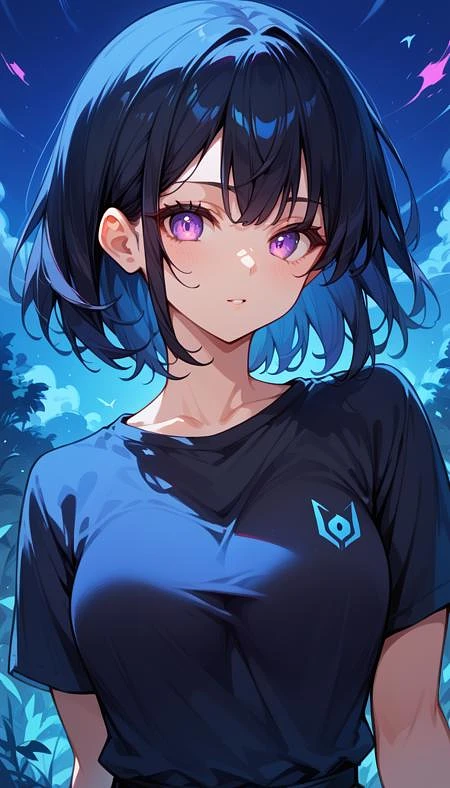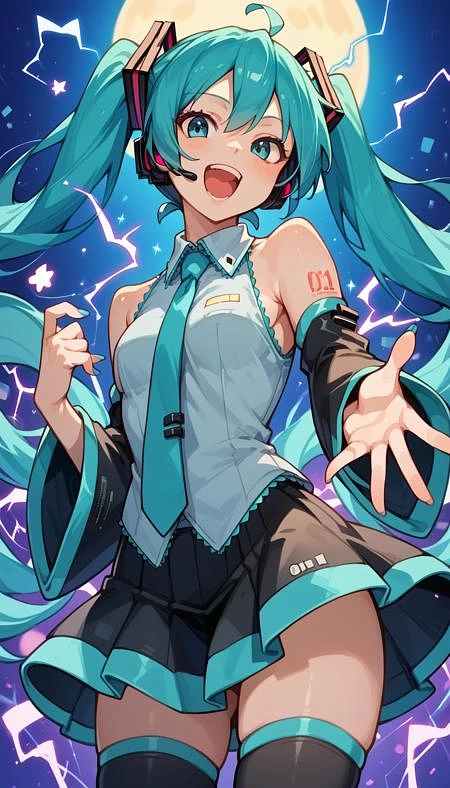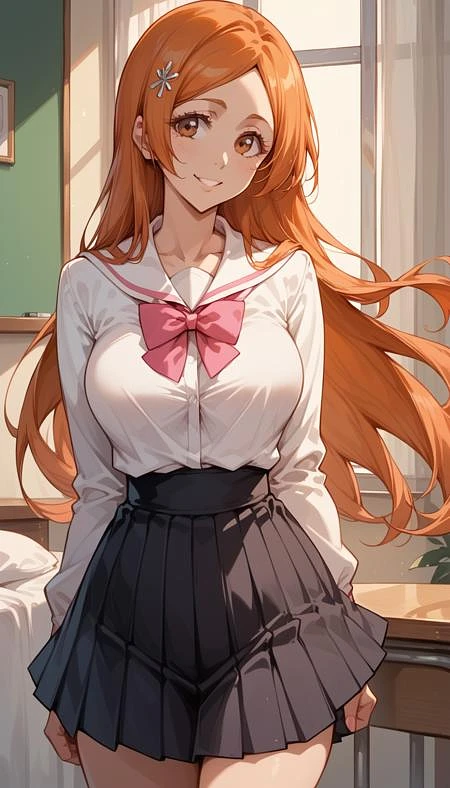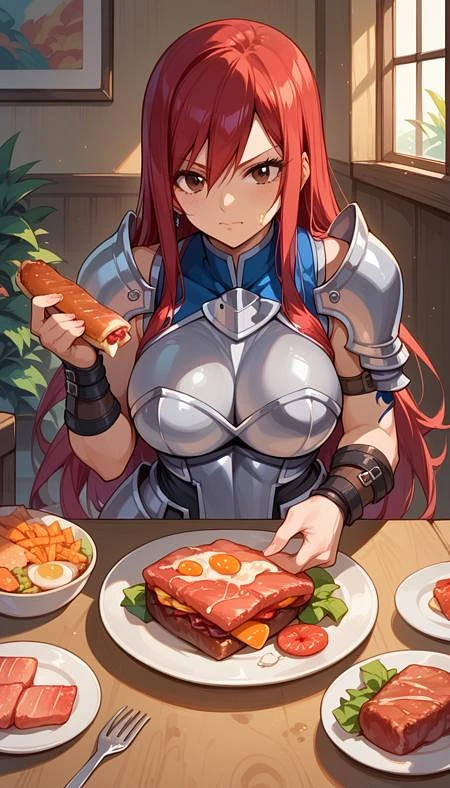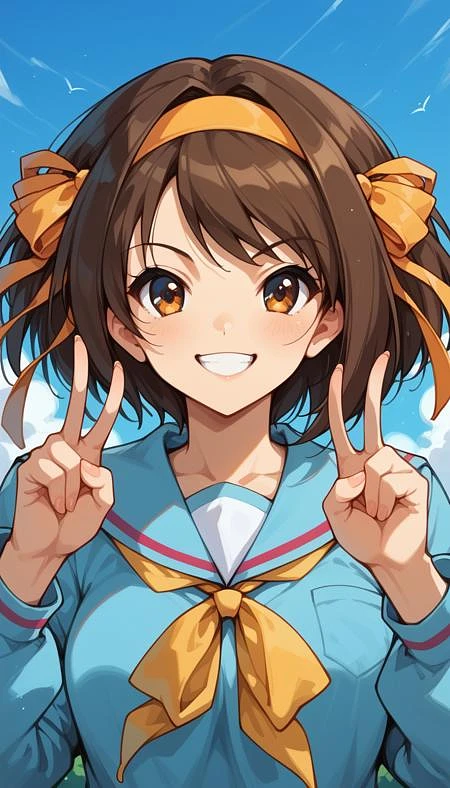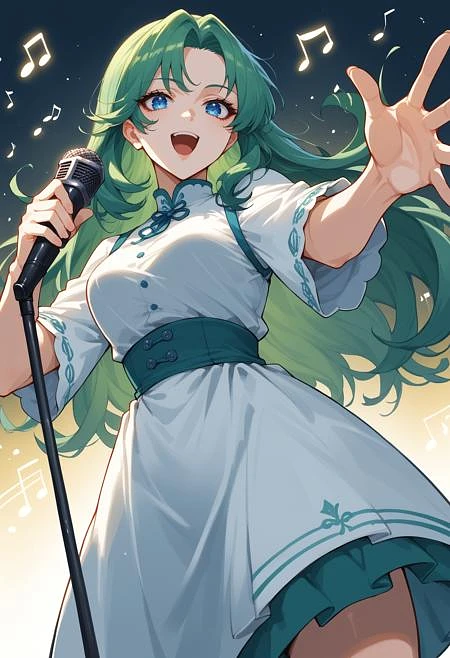Blue-Tear
v3V1
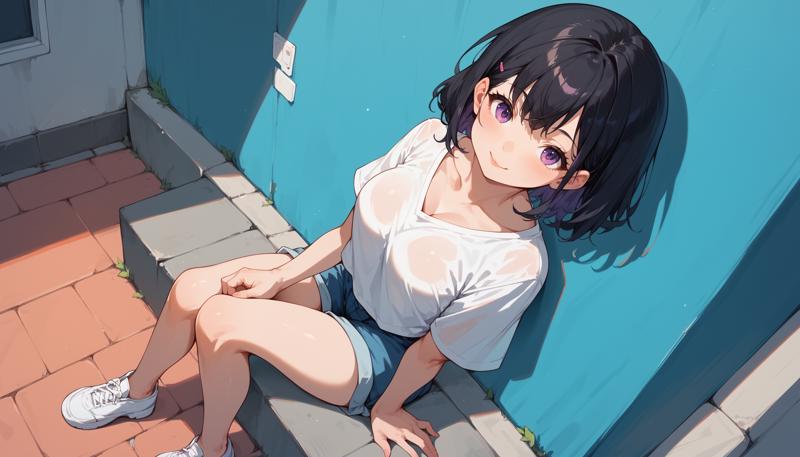
General Info
This is the base version of the model, i am sharing it to get more feedback to decide if it's worth keeping working on it, or changing the base model and the merging parameters.
This model uses Nova Anime XL as its base, so it can produce better results using score tags:
score_9, score_8_up, score_7_up, score_6_up, score_5_up, score_4_up, source_animeThe suggested negative tags are the same of the base model:
score_4, score_5, 3d, jpeg artifacts, username, watermark, signature, normal quality, worst quality, large head, low quality, text, error, missing fingers, extra digits, fewer digits, bad eyeThis model works best with the following parameters:
Resolution:
1024 x 1024
1152 x 896
896 x 1152
1216 x 832
832 x 1216
1344 x 768
768 x 1344
1536 x 640
640 x 1536
CFG Value: it should be between 5 and 7, i personally suggest 6 (even toh i've used 6.9 to test just for memes)
Steps: between 20 and 40 will produce the best results, in my opinion around 25-30 is the optimal value
Optional:
Highres Fix is strongly suggested, but it can produce pretty good images even without it.
Ultrasharp or a good upscaler for this model, i generally set it between 10 and 25 steps with a denoise strenght of about 0.3
Pro and Cons
pro:
The model has a pretty stable output.
The model recognizes the most of the famous anime characters.
The model has a good understanding of poses.
The model seems to have a good lora compatibilty.
cons:
The hands are just decent compared to other pony models.
The eyes have low details if images are generated without highres.fix
The prompt has to be carefully crafted to generate specific complex images
P.S The model support NSFW content.
What is Blue-Tear?
Blue-Tear is a highly specialized Image generation AI Model of type Safetensors / Checkpoint AI Model created by AI community user The_Hentai_Guy. Derived from the powerful Stable Diffusion (Pony) model, Blue-Tear has undergone an extensive fine-tuning process, leveraging the power of a dataset consisting of images generated by other AI models or user-contributed data. This fine-tuning process ensures that Blue-Tear is capable of generating images that are highly relevant to the specific use-cases it was designed for, such as anime, manga, base model.
With a rating of 0 and over 0 ratings, Blue-Tear is a popular choice among users for generating high-quality images from text prompts.
Can I download Blue-Tear?
Yes! You can download the latest version of Blue-Tear from here.
How to use Blue-Tear?
To use Blue-Tear, download the model checkpoint file and set up an UI for running Stable Diffusion models (for example, AUTOMATIC1111). Then, provide the model with a detailed text prompt to generate an image. Experiment with different prompts and settings to achieve the desired results. If this sounds a bit complicated, check out our initial guide to Stable Diffusion – it might be of help. And if you really want to dive deep into AI image generation and understand how set up AUTOMATIC1111 to use Safetensors / Checkpoint AI Models like Blue-Tear, check out our crash course in AI image generation.
Popularity
Info
Version v3: 2 Files
About this version: v3
Version Specifications for V3
Steps: 20 to 30
CFG Scale: 5 to 7
Resolutions: Same as SDXL (recommended resolutions for optimal output quality)
Highres Fix: Suggested; Ultrasharp Upscaler works well for enhancing details
Prompting Tips:
Pony Score Tags: These tags significantly impact the style, and experimenting with different combinations can yield diverse results.
Score_9, score_8_up, score_7_up: These tend to add more details suited for 2.5D and photorealism.
2D Results: To maintain a 2D style, use "source_anime" in the positive prompt and "gamecg, realistic, photorealistic, 3D" in the negative prompt for optimal separation.
Character Recognition and Styling:
Iconic Characters: This version can easily recognize most iconic female characters from anime and video games.
Male Characters: While the model can produce masculine body types, the range of pre-trained male characters is more limited.
Composition:
Backgrounds: The model tends to generate simple backgrounds by default. You can customize this by specifying "indoors" or "outdoors" if no specific background is desired.
Camera Angles: All common camera angles are recognized and handled accurately.
Clothing Flexibility: The model is highly flexible when it comes to outfit customization. You can modify clothing styles extensively by using appropriate tags.
Known Biases:
Halterneck Bias: If an image includes an unwanted halterneck or similar features, you can correct this by adding "halterneck, collar, detached collar" to the negative prompt.
Stability:
Hands: Hand generation is more stable in this version. If you encounter imperfections, retry using the same seed with "extra" enabled (if using Automatic1111).
Sampler Recommendation:
Euler a is the suggested sampler for achieving consistently high-quality results.
3 Versions
Go ahead and upload yours!
